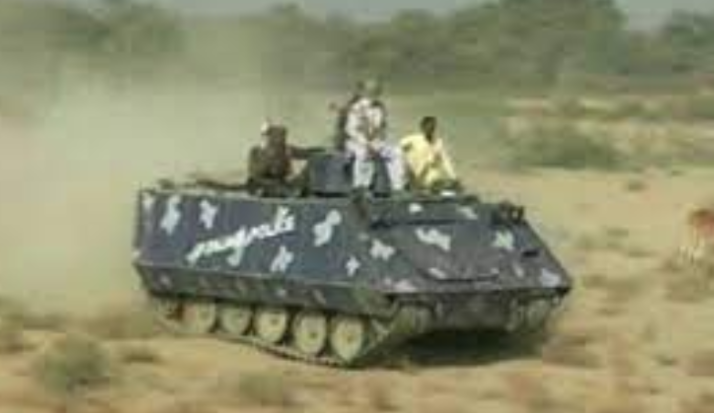
The Katcha areas of Sindh and Punjab have seen countless lives laid down by our brave police officers. Recently, gunmen with rocket-propelled grenades ambushed a police convoy in the Machka area, killing dozens and wounding many more. Even before the fallen officers had been laid to rest, the police announced that the main suspect behind the deadly attack had been killed in a retaliatory operation. This was no surprise — the law of the jungle prevails in this area, and ‘justice’ is usually delivered by the bullet instead of the courts.
Since 2003, Punjab Police have carried out ten operations in the Katcha area against tribes like the Sikhani, Chotu, Umrani, and Shar, eliminating 58 criminals at the cost of 19 officers’ lives. In the past two years, on the Sindh side, there have been over 300 encounters, which have resulted in the deaths of 48 dacoits. Meanwhile, more than 30 officers have been lost in these incidents.
The police’s martyrs have been our true shields against the forces of vice. They have put themselves before danger to protect our lives. We owe it to them to ask: were their deaths just a tragic twist of fate, or the result of a systemic failure of our policies and operational capabilities? The answers to that question invariably lead back to the actions — or rather, inactions — of our ‘pacca’ area elites.
Our police force is, in general, poorly recruited, under-equipped, and barely trained beyond the most basic drills. It consistently finds itself outmatched by better-prepared, trigger-happy criminals. Yes, we have police commandos, but let’s be honest: how many are there, and can they be everywhere at once? The police’s efforts in the Katcha areas, discussed briefly above, were hampered by the substandard armored personnel carriers (APCs) they use, questionable bounty announcements, inadequate police station infrastructure, and even desertions. Allegations that certain dacoit gangs were armed to combat others raised further concerns about the integrity of these operations.
Then who is to blame for the recent killings of policemen in the Katcha area? The answer seems glaringly obvious: the government and its institutions, their policies, and their dysfunction — both past and present. While acknowledging the complexities involved, it’s clear that they have not only failed to do enough but have also actively obstructed meaningful progress.
Criminal Justice System
The times have changed, and so have the challenges. Law enforcement officers often operate alone, living among those they protect and those who commit crimes. Armed with outdated gear and minimal tactical training, they are often clueless even about how best to protect themselves. Meanwhile, criminals operate with impunity, emboldened by a system that indulges in extrajudicial killings and a government that has long lost the public’s trust.
The effectiveness of law enforcement hinges on trust in the criminal justice system. With that hope eroded, everyone now attempts to navigate the law in their way while the state stands by as a mere spectator.
What is disheartening is that 98% of all police casualties consist of lower and upper subordinates — the frontline warriors of law enforcement. It is high time that the police leadership revisited their working strategies —retrained their forces and provided them with proper task briefings for each duty. The leadership should focus solely on law enforcement, resist illegal orders, and recognize that crime is an outcome of broader socio-economic issues. Instead of pleasing the rulers, police leaders should protect their constabulary, stand firm in their duties, and live up to the oath they took to serve the public.
We will continue to see cycles of operations, displacements, casualties on both sides, and brief periods of calm unless the root causes are addressed. Patronage and power dynamics will ensure that these issues resurface whenever it suits certain interests. It is, therefore, time for some serious measures in the riverine belt. A dedicated riverine police force is not just a suggestion, but an imperative. This unit must be specially trained to navigate the challenging Katcha terrain, with advanced tactics and equipment designed specifically for the unique threats posed by this area.
Among non-kinetic measures, we must help resolve local tribal feuds instead of siding with one group against another — a policy that has cost us dearly. Criminals must be dealt with through lawful means, and those driven to crime should be helped to start anew. It is high time we developed these areas, improved accessibility, and socio-economic conditions, and helped the locals see the value in their lives. The riverine force should work in tandem with development initiatives, ensuring that law enforcement and socio-economic progress go hand in hand. We should do this not just because vital assets like the Guddu Power Plant, the CPEC route, and a main railway line pass in their vicinity, but also to reduce police casualties.
If the government does not move beyond superficial actions and fails to invest in a long-term development and reform program, the cycle of violence and retribution will continue, with the innocent and the valiant both paying the price for the failures of those in power. When state institutions indulge in illegalities, the whole system eventually collapses.
This isn’t just a theory; it’s a hard-earned lesson from history. Allowing lawlessness to flourish at any level only uplifts criminals and weakens the state’s writ, ultimately dooming us all. As the government dabbles in petty politics and avoids addressing the real issues, let’s remember who pays the price: not them, but the courageous, the innocent, and the powerless. The police must stop being used as a tool for political ends and should be allowed to shift their focus to where it truly belongs — service delivery and justice.



















Leave a Reply